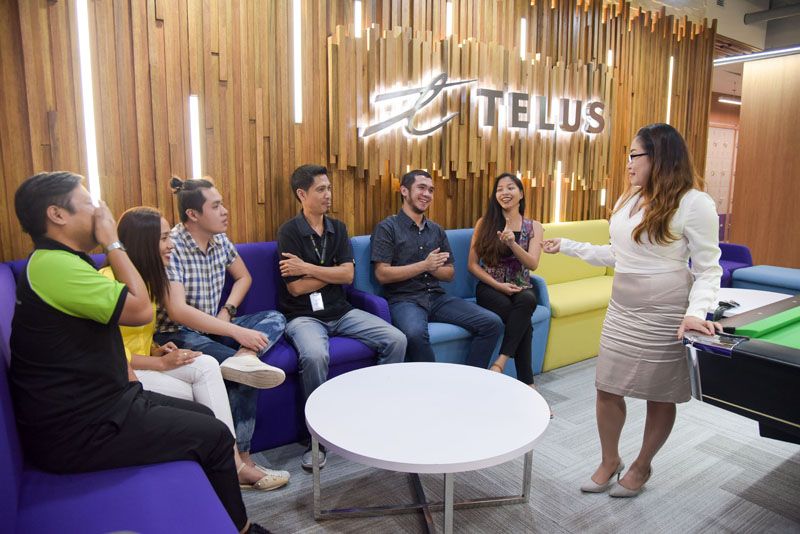
Upgrade to High-Speed Internet for only ₱1499/month!
Enjoy up to 100 Mbps fiber broadband, perfect for browsing, streaming, and gaming.
Visit Suniway.ph to learn
 JORGE FRANGANILLO-UNSPLASH
JORGE FRANGANILLO-UNSPLASHBy Beatriz Marie D. Cruz, Reporter
A PHILIPPINE government proposal to regulate harmful information online through international standards could stifle free speech, according to political analysts.
“We don’t want laws to be weaponized,” Danilo A. Arao, an associate journalist professor from the University of the Philippines, said by telephone. “Such media regulations would be tantamount to censorship even without using the word censorship; it’s de facto censorship.”
The House of Representatives has been investigating the spread of malicious and fake content online, citing its threat to democracy, national security and public trust.
Presidential Communications Office (PCO) Chief Jaybee C. Ruiz last week urged congressmen to pass a European Union (EU)-like Digital Services Act, which would outlaw the publication of harmful information online.
“I respectfully encourage our lawmakers to consider the framework of the Digital Services Act, a recently adopted EU regulation which prevents illegal and harmful activities and disinformation online, while still ensuring that the freedom of expression is upheld,” he told a House hearing.
However, many anti-fake news laws around the world have been heavily criticized for preventing freedom of expression, Mr. Arao said, citing Germany’s Network Enforcement Act, which mandates online platforms to remove illegal content or face fines of up to €50 million for systemic failures.
“What’s happening in Europe is not necessarily the context here in the Philippines, where we’ve had the history of censorship, and we’ve been under tyrannical rule,” Mr. Arao said.
The EU’s Digital Services Act itself has been deemed “incompatible” with America’s free speech tradition, US Federal Communications Commission (FCC) Chairman Brendan Carr said, citing tech firms’ commitment to diversity and inclusion, Reuters reported.
“It’s incumbent upon the PCO, especially given that the likes of [PCO Undersecretary Claire A.] Castro and Ruiz have a background in journalism, to review their knowledge of censorship on the one hand and responsible gatekeeping on the other,” Mr. Arao said.
“Because we cannot afford to have media regulation under the regime of the son of the dictator, and we recall that from 1972 to 1986, there was widespread censorship then,” he pointed out.
The late dictator Ferdinand E. Marcos, Sr. — the father of the Philippine President now — declared martial law in September 1972, which led to the heavy regulation and censorship of news.
Mr. Marcos ordered the shutdown of 292 radio stations, 66 community newspapers, 11 English weekly magazines, seven major English dailies, seven television stations, four Chinese dailies, three Filipino dailies, one Spanish daily and one English-Filipino daily, data from the state-run Official Gazette showed.
‘LAZIEST APPROACH’
Michael Henry Ll. Yusingco, a lawyer and senior research fellow at the Ateneo Policy Center, said copying laws from other jurisdictions is the “laziest approach to lawmaking.”
“For now, civil society needs to help netizens be less vulnerable to disinformation,” he said in a Facebook Messenger chat.
Mr. Arao cited the need to “go back to the basics,” including stronger media literacy and education, as well as self-regulation of the press.
Jonathan de Santos, chairman of the National Union of Journalists of the Philippines, said the government should focus on seeking accountability from networks and agencies focused on spreading misleading information.
“I think one way is going after the influence networks and public relations or social agencies that are creating and spreading misleading content,” he said in a Viber message. “We haven’t really done that as we have focused on individuals.”
Lawyer Antonio Gabriel M. La Viña, convenor of Movement Against Disinformation, said media platforms should be held liable for allowing the proliferation of wrong information on their platforms.
“[Between] posting the truth versus posting an ‘untruth,’ more users will look at an ‘untruth’ because it’s controversial,” he told News and Views on One News on Wednesday.
“Media platforms benefit from hate and disinformation, so we have to punish them and even close them down if they don’t comply,” he said in mixed English and Filipino.
“Perhaps a doable intervention, whether from government or from civil society organizations, would be to call out social media platform owners and demand that they undertake third-party fact-checking and other aspects of responsible gatekeeping,” Mr. Arao said.
Representatives from social media platforms should be made to explain before the House what they are doing about responsible gatekeeping, he said, citing Meta’s removal of its third-party fact-checking feature.
The next House hearing is scheduled for April 8. Social media personalities absent at the last hearing would be cited in contempt if they fail to attend.
“Such hearings should not be within the framework of what kind of regulation you need — that’s the wrong question,” Mr. Arao said.
“The right question would be: How do we fight disinformation? Or what can government do to strengthen self-regulation in media? Or how do we find ways to strengthen media literacy and education?” he added.




